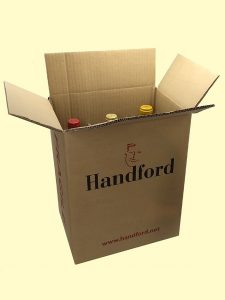
How to support South Africa’s wine industry – and sell more fantastic wine
In this incredibly challenging period, the South Africa drinks industry has been hit the hardest. An estimated loss of R300 million [£14 million] each week, and a potential loss of 18,000 jobs have been forecasted as just two possible outcomes of the South African government’s bans*, which have blocked both local sale and exports.
So, how can we in the UK help the South African wine industry? We caught up with Greg Sherwood MW, buyer at Handford Wines, who chatted with us about his journey in raising the bar of South African wine, and shared some ideas on how to support their wine industry in this difficult time.
 Greg Sherwood MW
Greg Sherwood MW
You’ve been focussing on South African wine for the past 20 years, building a portfolio that has been widely recognised (Handford Wines won IWC Specialist Merchant of the year in 2019, to name just one award). But how have you educated your customers to appreciate South African wine so much?
To get people to like South African wine, you need to have a good selection available. You see, South African wines are amazing because their producers are well-equipped to craft wines to rival the best in the world. They’ve got not only amazing climate, terroir and winemaking culture, but their wines are also much cheaper than European ones, presenting an amazing quality/value balance. Plus, producers never stop innovating, keeping things interesting! We arguably stock the best top-end selection of South African wines of the country, and we’re known for that. We specialise in new releases and niche products. It’s all quite unique in here.
So, the secret is to let customers try and drink these great wines as if they were drinking a top-end Bordeaux or Burgundy. We hold seasonal tastings throughout the year where we open great stuff. Once our customers taste these wines, they’re surprised by the exceptional value for money of these products. For example, a 6-pack case sells between £100 and £150, much cheaper than other products from California or Europe, but the quality is still up there.
Our customer base drinks a lot of classic-style wine, but South African wine is quite classical, too, so it suits their taste profile while being cheaper. It’s a win-win situation. The best thing to do is to create a virtuous circle, where we get some great wines into our customers’ cellars, giving them the confidence to open these wines with age. The wines improve in both value and quality, and our customers are always surprised by that. They usually call us and say ‘wow, these wines are great!’ and never miss a new release anymore!
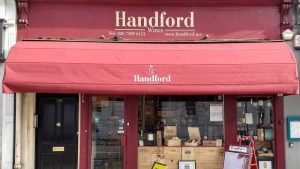 Handford Wines
Handford Wines
How have you adapted your wine offering to help selling more South African wine during lockdown?
We’ve created a lot of mixed cases, all extremely easy to order and available for both home-delivery and click-and-collect services. We were lucky enough to have a lot of stock available here that was ready to be sold, and, after the first ban was lifted, we were able to receive some more to keep our stock levels high. The typical bottle spend during lockdown was around £10 – £30, and South African wine was at the right price point for that. Plus, customers who wouldn’t normally buy South African products were happy to try new things. We received good feedback from the first cases sold, because South African styles are quite classical, appealing to our customers’ tastes.
Customers could choose between 3-pack or 6-pack cases containing a selection of different producers, or the same producers but different wines. For example, we explored wines from Hemel-en-Aarde, then we did a Pinot Noir box, and a Bordeaux blend, and so on. We found this format quite successful because our customers were happy with the variety offered. They wouldn’t want to buy a full case of a specific wine, for example, but they enjoy these mixed selections.
Now, even if the second ban is affecting only the local trade, there is a big backlog of shipments which haven’t made it out from the ports yet. Logistic services are working with a skeleton staff, so shipments are taking much longer to be processed and arrive in the UK. On our end, we’re well-stocked, so we’re still putting together mixed cases, which help the industry by creating more demand. Some of these cases were sold out within half an hour of their release! We’re also doing new release offers, with a lot of wine set to arrive between August and September. We’re getting all the big names for that, it’s an exciting moment!
Do you have any suggestions for other wine merchants on how to support the South African wine industry, now and in the future?
It’s definitely a great moment to support the industry, because there’s so much good wine out there! In the past 4-5 years, more and more consumers have started to realise the quality of South African wine, and this appetite is growing. It’s important to seize the moment and keep selling great wines. After the first South African ban, there is much more stock availability than usual. Those allocations that were ready to be shipped out need to be re-allocated through export. So, it’s a good time to get some of that wine from importers, expanding your offering.
The 2019 vintage is fantastic for both red and white varieties, and there is some really incredible wine that offers unparalleled value for money at every price point. We need to use this ban to make more of an effort and buy more South African wine! A lot of merchants have South African wine, but it’s time to do more, to offer more, and the returns will be successful, now and in the future.
